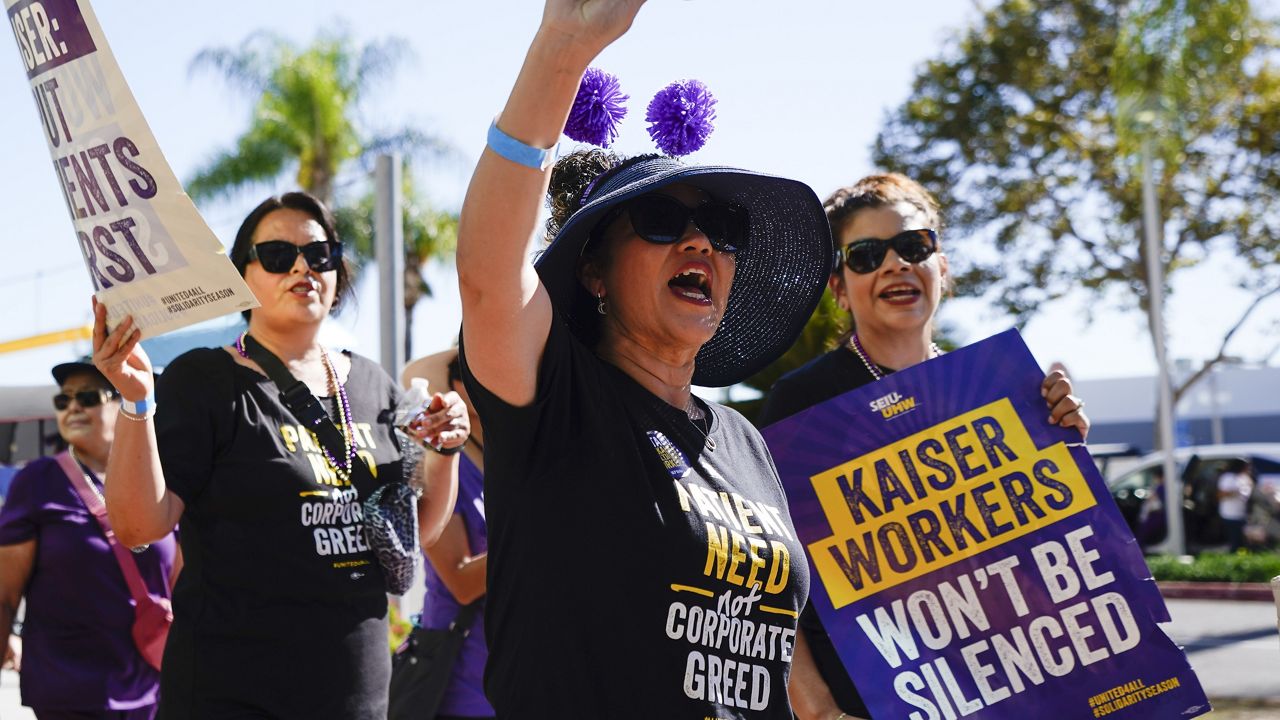Frontline workers at Kaiser Permanente say they may strike again in November if the national nonprofit healthcare provider doesn’t remedy staffing issues. About 75,000 housekeepers, respiratory therapists and other non-doctor staff walked off the job for three days last week to protest what they say are unsafe staffing levels, labor law violations and inadequate wages.
“For months, Kaiser executives failed to listen to the feedback from the frontline healthcare workers about the need for executives to follow the law in negotiations and about the impacts that the Kaiser short staffing is heaving on patients,” Coalition of Kaiser Permanente Unions Executive Director Caroline Lucas said in a statement.
On Monday, the Coalition served Kaiser Permanente with an official notice that it may conduct a follow-up strike for one week starting November 1, the day after a contract covering Kaiser frontline workers in Seattle expires, allowing an additional 3,000 staff to join the picket lines.
Last week’s strikes took place in California, Oregon, Colorado, Virginia, Washington, D.C. and southern Washington state. An additional strike in November would expand to Seattle, which the Coalition describes as one of Kaiser’s emerging markets.
Kaiser is one of the nation’s largest nonprofit medical organizations. It serves 13 million people at 39 hospitals in seven states.
The Coalition representing 11 healthcare worker unions has been negotiating with Kaiser since April to improve understaffed hospitals and clinics that they say are leading to long wait times, mistaken diagnoses and patient neglect. The group’s four-year contract expired September 30.
Kaiser confirmed with Spectrum News that it had received the intention-to-strike notice on Monday and is scheduled to return to the bargaining table October 12.
“Kaiser Permanente remains committed to reaching an agreement that is good for our employees, our members and our organization, and we will continue to bargain in good faith with the Coalition,” a company spokesperson said in a statement.
Prior to last week’s strike, Kaiser Permanente said it had already met the goal it reached with the Coalition in April to hire 10,000 new Coalition-represented employees by the end of 2023, adding to the 50,000 people it has hired over the past two years.
On Monday, the Coalition said outsourcing has become a major sticking point in its negotiations with Kaiser executives. Its members are seeking “commonsense limitations on subcontracting and outsourcing,” the group said in a statement.



